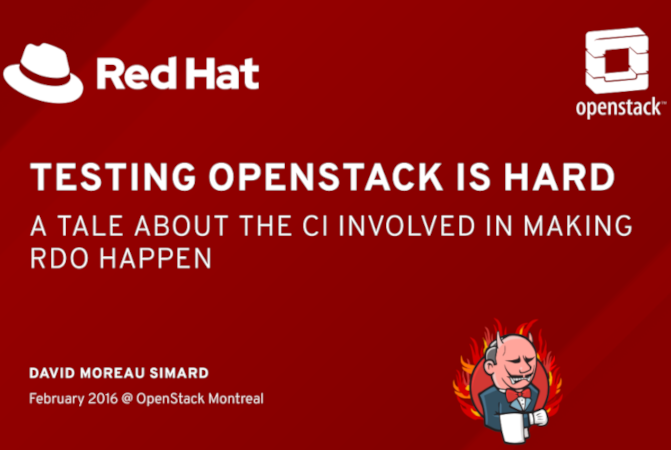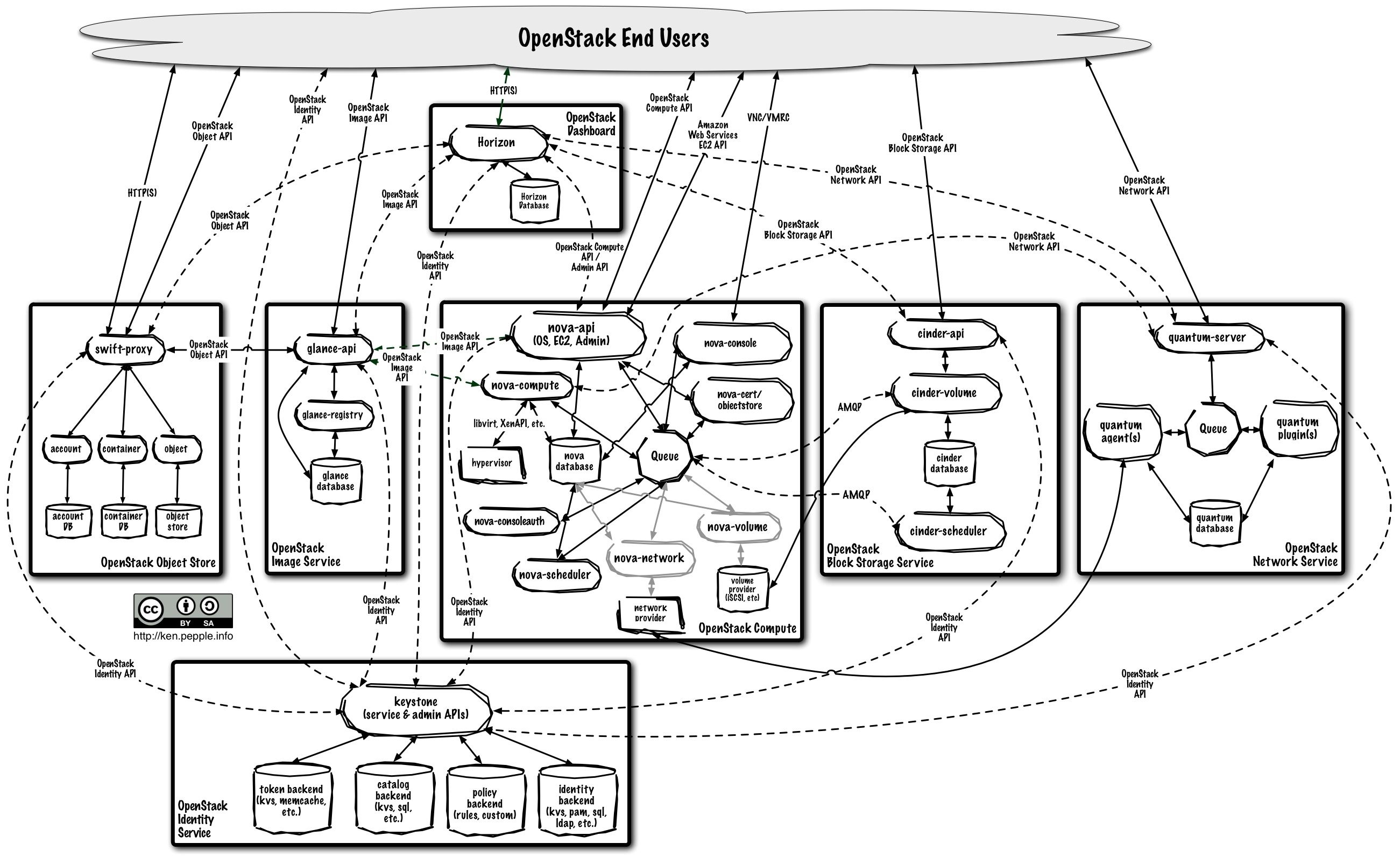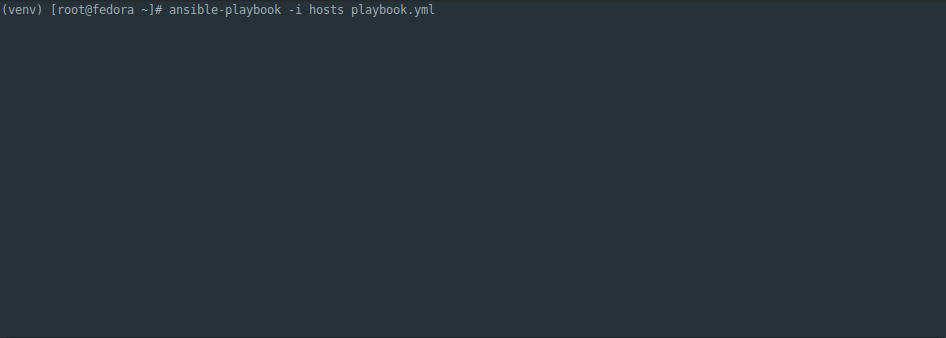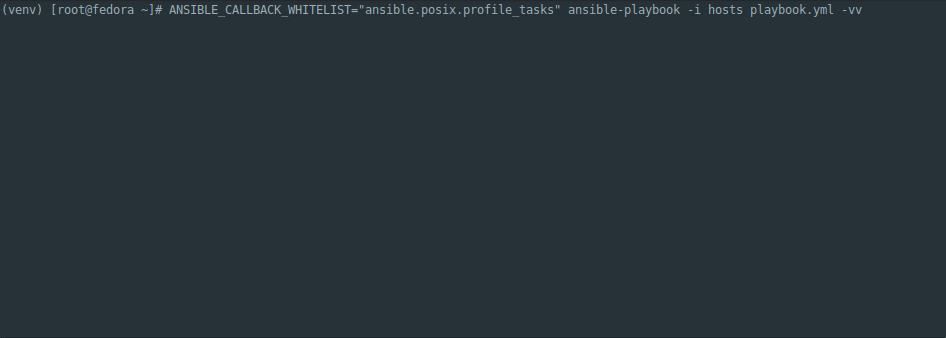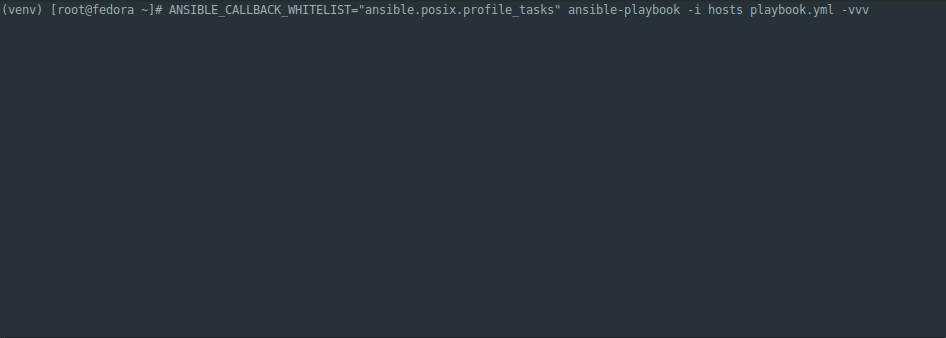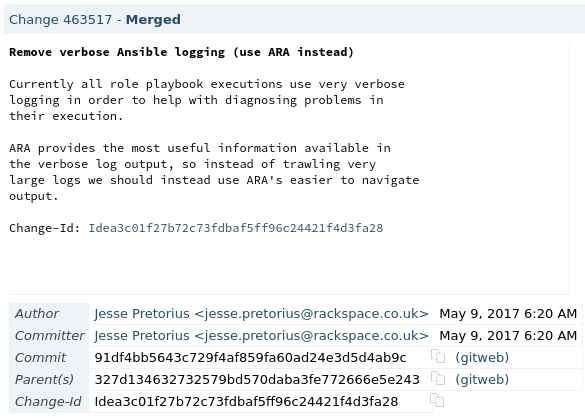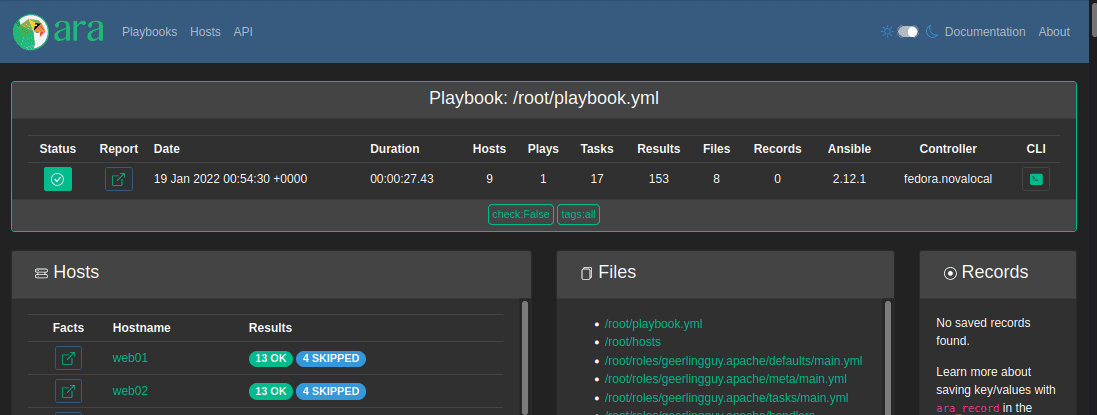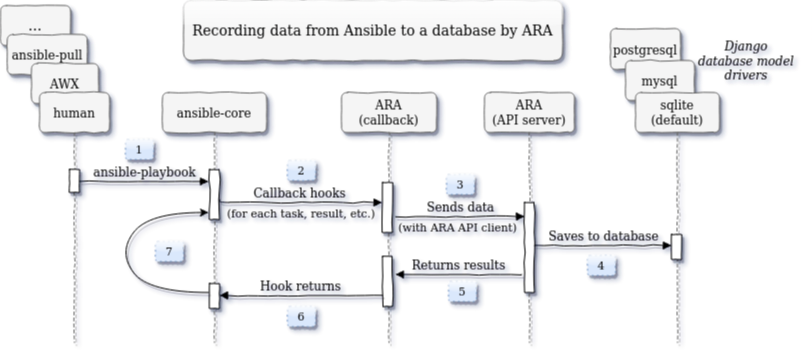$ whoami
---
- name: David Moreau-Simard
hosts:
- dmsimard:matrix.org
- twitter.com/dmsimard
vars:
location: Montreal, Canada
profile: sysadmin, dev/ops, CI/CD, SRE
roles:
- Principal Software Engineer in the Ansible community team @ Red Hat
- Ansible user and contributor since version 1.8 or so (2014?)
- Release the 'ansible' package in collaboration with the community working group
- Improve tooling, workflows and processes for users, contributors and maintainers alike
Ansible callback plugins
# https://github.com/ansible/ansible/blob/devel/lib/ansible/plugins/callback
def v2_on_any(self, *args, **kwargs):
def v2_runner_on_failed(self, result, ignore_errors=False):
def v2_runner_on_ok(self, result):
def v2_runner_on_skipped(self, result):
def v2_runner_on_unreachable(self, result):
def v2_playbook_on_start(self, playbook):
def v2_playbook_on_task_start(self, task, is_conditional):
def v2_playbook_on_handler_task_start(self, task):
def v2_playbook_on_play_start(self, play):
def v2_playbook_on_stats(self, stats):
def v2_playbook_on_include(self, included_file):
# [...]
Ansible callback plugins
def v2_playbook_on_start(self, playbook):
path = os.path.abspath(playbook._file_name)
# Potentially sanitize some user-specified keys
for argument in self.ignored_arguments:
if argument in cli_options:
cli_options[argument] = "Not saved by ARA as configured by 'ignored_arguments'"
# Create the playbook
self.playbook = self.client.post("/api/v1/playbooks",
ansible_version=ansible_version,
arguments=cli_options,
status="running",
path=path
)
Getting started
Offline with the default sqlite backend
# Install Ansible and ARA (with API server dependencies) for the current user
python3 -m pip install --user ansible "ara[server]"
# Configure Ansible to use the ARA callback plugin
export ANSIBLE_CALLBACK_PLUGINS="$(python3 -m ara.setup.callback_plugins)"
# Run an Ansible playbook
ansible-playbook playbook.yaml
# Use the CLI to see recorded playbooks
ara playbook list
# Start the built-in development server to browse recorded results
ara-manage runserver
Getting started
With a containerized API server
# Create a directory for a volume to store settings and a sqlite database
mkdir -p ~/.ara/server
# Start an API server with podman from the image on Quay.io:
podman run --detach --tty --name ara \
--volume ~/.ara/server:/opt/ara:z \
-p 8000:8000 \
quay.io/recordsansible/ara-api:latest
# or with Docker and Docker Hub:
docker run --detach --tty --name ara \
--volume ~/.ara/server:/opt/ara:z \
-p 8000:8000 \
docker.io/recordsansible/ara-api:latest
Getting started
Configuring the callback to send data to our server
# Install Ansible and ARA (without API server dependencies) for the current user
python3 -m pip install --user ansible ara
# Configure Ansible to use the ARA callback plugin
export ANSIBLE_CALLBACK_PLUGINS="$(python3 -m ara.setup.callback_plugins)"
# Set up the ARA callback to know where the API server is located
export ARA_API_CLIENT="http"
export ARA_API_SERVER="http://127.0.0.1:8000"
# Run an Ansible playbook
ansible-playbook playbook.yaml
# Browse http://127.0.0.1:8000 to view the reporting interface



